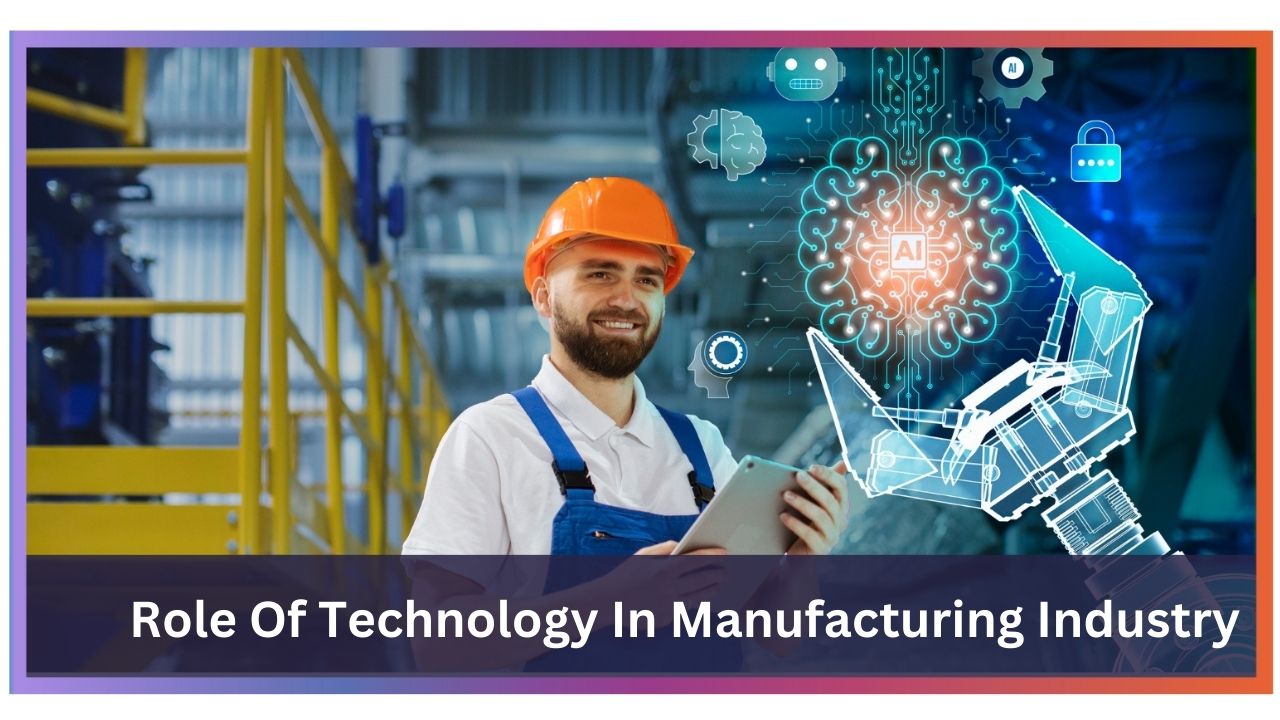The Manufacturing Industry is on the Edge of a Transformative Era - Manoj Kumar, Co-founder, Partner Portal
Posted On: Dec 29, 2023
The world we are in today isn’t the same one I was born into. Technologies have brought a lot of changes around. It is in almost every aspect, as we interact, run businesses, do shopping, live our daily lives, and work and more. The usage of technologies in any industry cannot be understated, as sectors rely on emerging technologies to increase their competitive advantage and drive growth.
In my close to two decades of association with The Manufacturing Industry, I have witnessed how industry has embraced technology to bring in some astonishing evolution. It has been at the forefront of innovation and expanding its boundaries of possibilities. From manually handling machines to today’s cutting-edge robotics and automation, the manufacturing industry has eagerly adopted innovations to boost efficiency and productivity.
The History of Industrial Revolution
Throughout the journey of industrial evolution, technology has always been at the center. It has made people’s lives easier at every stage and brought more innovative ideas. While in the first phase of industrial revolution it was introduction of basic machine tools and assembly lines that focused on production quality and speed, the Industrial Revolution 2.0 brought an era of rapid technological evolution and scientific discoveries. Since then, electronics and computer technologies have been in the forefront of bringing in digital transformation and we saw a massive boost in digital transformation. Now, in the fourth revolution automation processes in the manufacturing industry, cloud computing, artificial intelligence, IoT (Internet of Things), and the IIoT (Industrial Internet of Things) are becoming the cornerstones for modern industrial processes.
Gearing up to Industry 5.0?
As we stride towards the Industry 5.0 Technologies such as automation, robotization, big data analytics, smart systems, virtualization, AI, ML, and the Internet of Things, are helping in bring in a new future of industrial transformation around the technologies, humans, and the environment as its center.
I certainly believe Industry 5.0 proposes an era where advanced technologies would help Industry become stronger and with the combined power of humans and machines for a sustainable, resilient, and human-centered approach to the manufacturing industry.
One such technology which i am very excited about is AI-powered robots that work together to enhance societal value and Sustainability more than economic value. We are ready to switch away from robots to “cobots” or collaborative robots.
Cobots unlike robots, collaborate with humans helping with laborious and repetitive tasks. For example, assembly, material handling, and quality inspection etc. Now, humans can do higher-value tasks that require skills such as problem-solving abilities, creative ideas, and develop advanced cognitive skills and more.
Manufacturing companies would adopt them to minimize workplace injuries, increase productivity during downtime, and improve quality standards and more. Businesses will benefit from increased profits and employees will develop new skills that will keep them relevant in the workplace. Manufacturing automation is changing as collaborative robots would make companies more profitable and keep humans happier.
Industry 5.0 The Next Big Step. Be Ready
As we get ready to take the big leap, we would perhaps take two steps back and be sure we have the right momentum built. Industry 5.0 would be all about building technologies that are human-centric, resilient and sustainable. All three have significant implications for the business strategy of any industry.
The Industry 5.0 would have the primary focus to create value for the workforce. Attracting and keeping the best talent or employees would be important as always but now the focus would also be on providing the right technologies to the workforce that will put humans at the center of production processes by empowering them That to me is what would drive industry 5.0 i.e. building technologies through a human-centric approach.
Crises such as COVID 19 have tested our business on its resilience, and many have failed miserably on this front. And technologies in Industry 5.0 for manufacturing would focus largely on making businesses more robust and resilient. Through the use of digital technologies and methodologies (simulations, AI-enhanced modeling). Cost, substitution, quality, and logistical concerns that are weighed into the equation, technology would help us build a resistant supply chain to secure the continuity of essential supplies in times of crisis.
In Industry 5.0 technology would be also about sustainable manufacturing Industry to bring attention to the 3Ps – People, Planet, and Profit. It would bring in technology that repurposes and recycles the resources to make manufacturing sustainable. The process is to reduce the environmental impacts in the manufacturing industry. Industry 5.0 would emphasize the sustainability strategy, to increase the positive impact instead of reducing the negative impact.
The Future is Bright
I see manufacturing industry in the forefront of adopting he Industry 5.0 revolution rapidly to reap its benefits which included:
- Increase the efficiency of businesses and offer more opportunities.
- Using a suitable machine, humans can eliminate repetitive tasks and increase their problem-solving skills and creativity.
- Flexibility and customizability will increase productivity and production quality.
- Efficient utilization of resources will lead to cost reductions for manufacturers.
The manufacturing industry is on the edge of a transformative era and demands a paradigm shift for radical change. I certainly see it embracing strategies or approaches of Industry 5.0 that can help the manufacturing industry scale its performance. Implementing advanced technologies, re-skilling the workforce, enabling real-time monitoring, and facilitating swift decision-making can assist the manufacturing industry in bringing balance and increasing efficiency.